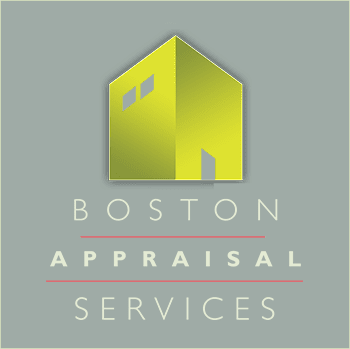The Impact of Zoning Laws and Land Use Regulations on Property Values for Real Estate Investors
Categories: Real Estate Appraisal
In the intricate world of real estate investment, an understanding of local zoning laws and broader land use regulations is paramount. These frameworks not only shape how properties can be used but also have a profound impact on their market value. For investors, a nuanced grasp of these legal aspects is essential to navigate the complexities of the real estate market and to capitalize on investment opportunities.
Understanding Zoning Laws and Land Use Regulations
Zoning laws are specific ordinances set by local governments, defining how properties in designated areas can be used. These laws are a crucial component of urban planning, influencing the layout and character of different parts of a city or town. Land use regulations, on the other hand, encompass a wider set of rules that oversee the development and utilization of land. This broader category includes zoning but also extends to environmental regulations, building codes, historical preservation, and public safety measures. Together, these regulations shape the overall development pattern of communities and directly influence real estate markets.
The Basics of Zoning Laws and Land Use Regulations
Zoning laws categorize land into various zones—residential, commercial, industrial, agricultural and mixed-use—each with specific permissible uses and restrictions. These laws dictate aspects like the types of buildings allowed, their sizes, placement, and the density of development. Land use regulations go further, setting standards for environmental protection, infrastructure development, historical conservation, and public health. They provide a framework that guides not only how land is used but also how it is conserved and managed for future sustainability.
Types of Zoning and Land Use Regulations
- Residential Zoning and Regulations: These specify the kinds of residential buildings permissible, such as single-family homes, apartments, or duplexes. Land use regulations in these areas may include guidelines for green spaces, community amenities, and environmental impact assessments to ensure sustainable living environments. There may also be specific zoning regulations such as minimum lot sizes, frontage and side yard requirements, etc.
- Commercial Zoning and Regulations: These govern land used for businesses, including shops, offices, and entertainment venues. Land use regulations in commercial zones might address issues like parking requirements, signage, accessibility, and impact on local traffic patterns.
- Industrial Zoning and Regulations: These regulations focus on areas designated for manufacturing and industrial operations. Land use regulations in these zones are often stringent, encompassing waste disposal, emissions, noise levels, and worker safety standards.
- Agricultural Zoning and Regulations: Apply to land used for farming and agricultural activities. These regulations often include measures for land conservation, water use, and sustainable farming practices.
- Mixed-Use Zoning and Regulations: Allow for a combination of residential, commercial, and industrial uses. Land use regulations ensure that these mixed activities coexist harmoniously, addressing issues like traffic flow, community integration, and the preservation of local character.
Market Data and Influence on Supply and Demand
Market data, including property prices, rental rates, and demand trends, is closely linked to zoning and land use regulations. These rules influence the availability and scarcity of properties, thereby impacting their market value. In areas with restrictive residential zoning, for example, a limited supply of housing can lead to higher property prices. Conversely, areas with more permissive zoning and land use policies might see a greater supply of properties, which can stabilize or lower prices.
Direct Impact on Property Values
Zoning laws and land use regulations have a significant impact on property values. Properties in high-demand areas with restrictive development regulations typically appreciate more rapidly, as supply might be limited. Conversely, properties in less desirable areas, with more stringent land use regulations may have limited growth potential, affecting their investment appeal.
The Appraiser’s Role
Appraisers play a critical role in real estate transactions, particularly in assessing property values. They take into account both zoning laws and broader land use regulations when comparing properties. By examining sales of similarly zoned properties and considering the impact of land use regulations, appraisers provide a market value that reflects these legal constraints and opportunities.
Potential Drawbacks and Challenges
Navigating the realm of zoning laws and land use regulations poses several challenges for real estate investors:
- Restrictive Development: Investors may find their options limited by strict zoning and land use regulations, affecting the available legal avenues of development and therefore the potential profitability of a property.
- Regulatory Changes: The real estate market can be significantly affected by changes in zoning laws and land use regulations. These changes can be unpredictable and have significant impact property values, both good and bad.
- Complexity: The complexity and variability of zoning and land use regulations necessitate thorough research and understanding. In some cases, investors may need to seek legal consultation to fully comprehend the implications of these laws on their investments.
Conclusion
For real estate investors, a comprehensive understanding of zoning laws and land use regulations is crucial. These laws not only determine the permissible uses of a property but also significantly influence its economic value. By adeptly navigating these legal frameworks, investors can make informed decisions, identify lucrative opportunities, and mitigate risks in their real estate ventures. One such way to do so would be through proper appraisals.
Our appraisers at Boston Appraisal Services are adept at helping our clients, by conducting Highest and Best use appraisals that analyze zoning and land use regulations. Whether you are looking for assistance in the development of new subdivisions or simply trying to determine if a property can be converted, we are here to help. For more information, please visit www.bostonappraisal.com or call our offices at 617-440-7700.





Leave a Reply
Want to join the discussion?Feel free to contribute!